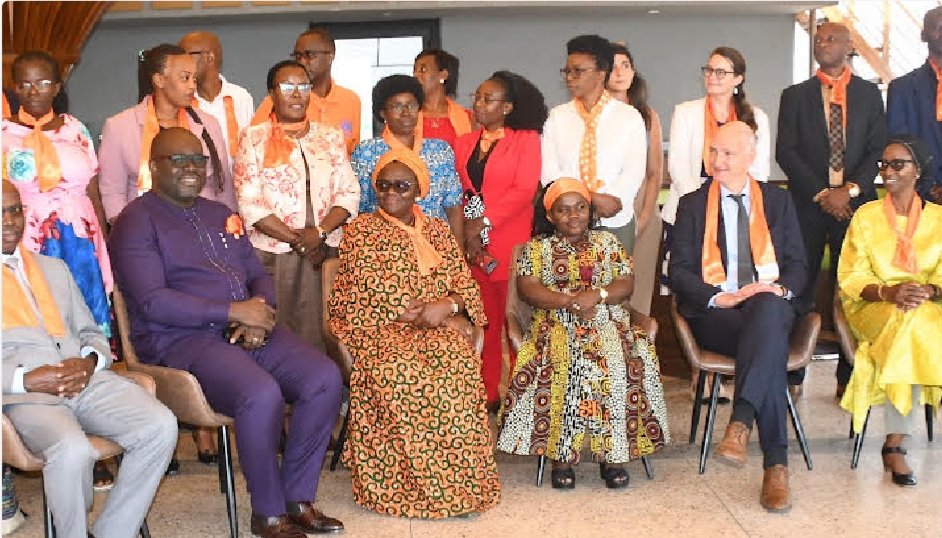BUJUMBURA, November 27th (ABP) – As part of the gender sector group and the 16-day activism campaign against violence to women and girls, under the theme: “Towards 30 years of the Beijing Declaration and Action Plan: let’s unite to end violence against women and girls”, the Ministry of Human Rights and Gender, in collaboration with various development partners, organized on Tuesday, November 26, 2024, a workshop for reflection and advocacy for the implementation of gender sector priorities.
In her opening speech, the Minister in charge of gender, Imelde Sabushimike, said that this workshop aimed to encourage the commitment of actors in the promotion of gender equality to the financing of projects with a tangible and sustainable impact on the lives of Burundian women and girls. She added that this workshop constitutes a space for exchange and reflection on innovative financing mechanisms and opportunities for synergy for the financing of priorities in the gender sector.
According to her, the issues of gender equality and the fight against violence to women are a priority of the government of Burundi. She reassured that significant progress has been made by the government in terms of gender equality, the empowerment of women and the fight against sexual and gender-based violence. For example, Sabushimike reported that the government has created the Department of GBV Prevention and Holistic Care of Victims, the Center of Excellence for Information, Training and Research on GBV, the Humura Center of Gitega and Rumonge for the holistic care of GBV victims as well as the integrated centers of Makamba, Cibitoke and Muyinga.
Indeed, Sabushimike indicated that the vision of Burundi as an emerging country by 2040 and a developed country in 2060 outlines a guideline for all development initiatives, both for government programmes and for its partners, including efforts to promote gender equality and combat GBV.
According to her, significant progress has been made by Burundi in the implementation of the Beijing Platform for Action. This includes, among others, the creation and operationalization of the Women’s Bank for Investment and Development (BIDF); the creation of the Youth Investment Bank (BIJE); the establishment of the national strategy for the effective participation of women and girls in decision-making bodies (2023-2030) and the development of the national strategy for the protection of the family (2023-2027).
Despite those efforts made by the government of Burundi, Sabushimike announced that major challenges persist. These include the representation of women in decision-making spaces; women’s access to economic and productive resources; the persistence of gender-based violence and the change in social norms. However, she insisted that the main barrier remains adequate financing of gender sector priorities and especially the integration of gender in budgetary processes both at the government level and in interventions financed by national and international partners.

As for the UN Women representative Clara Anyangwe, the 16-day activism campaign symbolizes a collective commitment for lasting change. Gender-based violence, in all its forms, is a flagrant violation of human rights, a scourge that affects millions of women and girls around the world and in Burundi, she stressed. According to her, every day, women and girls are victims of physical, sexual, psychological and economic violence. Anyangwe unfortunately noted that this situation compromises not only their well-being and health, but also their future and that of their communities. However, Anyangwe said that 25 years after the institutionalization of the campaign, challenges continue to be noted. The culture of silence and impunity remains a major obstacle. The stereotype of the woman victim, often reduced to her status as a victim, and the normalization of violence in certain communities, continue to fuel this vicious cycle, she explained. For this, Anyangwe said, it is essential to strengthen support mechanisms for survivors and ensure that perpetrators are held accountable. It is through collective commitment and determined action that these challenges can be transformed into opportunities for real and lasting change, she said. “Together; we can maximize our efforts and have a real impact,” she added.
She reaffirmed UN Women’s commitment, “to work tirelessly with all stakeholders to ensure that every woman and girl, every man and boy, in Burundi, can live without fear, without violence and with every opportunity to realize their potential.”
According to the Head of Cooperation of the European Union (EU) to Burundi, Ivo Hoefkens, gender equality is a fundamental value recognized as a universal right, as well as an essential factor for inclusive economic growth, peace and development. Hoefkens affirmed that “the EU is, and will remain, strongly engaged with the Republic of Burundi to address the challenges in this area and contribute to achieving the sustainable development goals.”

